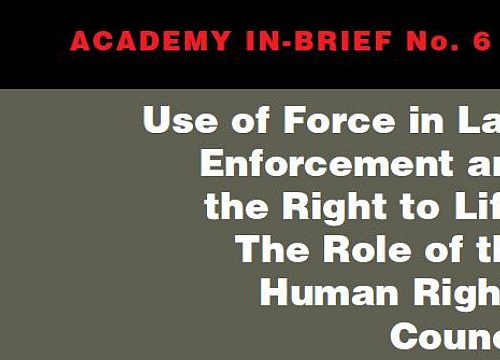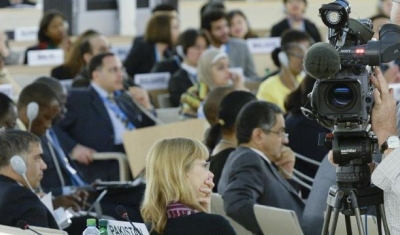Use of Force in Law Enforcement and the Right to Life: The Role of the UN Human Rights Council


Geneva Academy
29 November 2016
The use of force by law enforcement agencies has been high on the agenda of the UN Human Rights Council (HRC) for many years.
Our new In-Brief Use of Force in Law Enforcement and the Right to Life: The Role of the Human Rights Council draws from the discussions of our first Global Expert Seminar on the Right to Life. It examines how the right to life is affected by law enforcement agencies’ use of force and identifies how the HRC could further promote respect for international standards governing policing.
Addressing Key Questions
The In-Brief also addresses many questions discussed in the HRC: What are the main standards and how are they understood? Do they enjoy widespread support among states and international organizations, including during counter-terrorism operations? Would it be warranted to set out in more detail how the standards should be applied?
Areas of Action for the HRC
Based on the research undertaken, this In-Brief suggests areas for action by the HRC. The author notably suggests that the HRC can promote the implementation of existing international standards governing the use of firearms by law enforcement through its special procedures and by providing a space for discussion. The new Special Rapporteur on extrajudicial, summary or arbitrary executions could take the lead on these issues early in her mandate, following the important 2014 report on use of force during policing.
Given his expertise, the new Special Rapporteur on torture, Dr Nils Melzer, could contribute to the current debate on use of firearms and less-lethal weapons by the submission of a report on the use of force by law enforcement officials early in his mandate. This report would be valuable to clarify under what circumstances the use of firearms amounts to torture.
Author
This In-Brief was written by Dr Stuart Casey-Maslen, Honorary Professor at the Law Faculty, University of Pretoria.
Support
We gratefully acknowledge the funding for this In-Brief provided by the Swiss Federal Department of Foreign Affairs.








